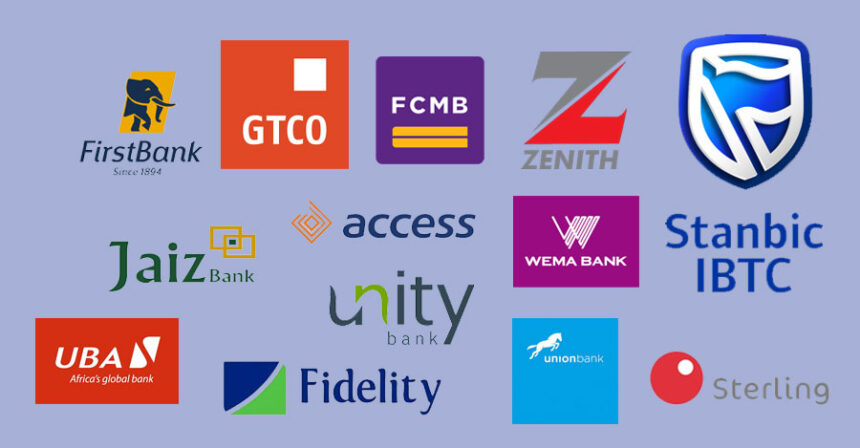Following the Central Bank of Nigeria’s directive in March, which increased the minimum capital base for banks, 26 banks are now actively engaging in capital markets and investment platforms. This initiative aims to enhance resilience against financial shocks and contribute to a more stable economic environment.
To achieve this, commercial banks with international authorisation are mandated to increase their capital base to N500bn, national banks to N200bn, and non-interest banks with national and regional authorisations to N20bn and N20bn, respectively. Banks have 24 months, starting April 1, 2024, and ending March 31, 2026, to meet these requirements.
Consequently, leading banks have started taking proactive steps to meet the CBN’s mandate. Zenith Bank intends to surpass the CBN’s mandate by raising N290bn in fresh capital, while Fidelity Bank has increased its capital raising target to N205.45 billion from its original goal of N127.1bn.
Guaranty Trust Holding Company seeks to raise N400.5 billion from the public, and Access Holdings is raising N351 billion from its current shareholders. FCMB Group plans to raise N110.9bn through 15.197bn shares and N397bn through a three-phased approach, to drive its diversification plans, including incorporating a Technology Holding Company by 2026.
Without doubt, the directive issued by the CBN has made the Nigerian banking Sector a focal point for investment as of recent.
While banks are employing a range of strategies to attract potential investors, financial experts advise evaluating the following key factors when considering investment opportunities:
Capital Adequacy Ratios (CaR)
This evaluates banks’ capital relative to risk-weighted assets. A higher CaR signifies a bank’s ability to absorb potential losses, indicating stability and security.
Assets and funding sources
Consideration of funding sources is crucial as a diversified and stable funding base can help mitigate market volatility risks. Also evaluate the bank assets, especially loan portfolios, for potential risk.
- Advertisement -
Return on equity
Banks’ profitability metrics, such as return on equity and return on assets, will provide insights into their operational efficiency and profitability. Similarly, analyzing changes in dividend policies can reveal banks’ financial health and cash flow generation.
Economic data
It is also important to monitor the broader economic environment, such as interest rates, inflation, and economic growth, as these factors can greatly affect the performance of the banking sector during recapitalisation.
Management structure
Evaluating management quality is crucial. A strong leadership can drive a bank’s performance and strategic direction. Avoid investing heavily in banks with limited ownership and broad operations.
Records
The track records of banks must be taken into account. The payout ratio for dividends, earnings per shareholder, and dividends per shareholder should also be verified. If a bank’s forecast indicates upside, taking a higher stake might be considered.
Organisation
When investing in equities, banks corporate governance culture, non-performing loan portfolio, and loan-to-deposit ratio are to be considered. Also, being current about regulatory changes and government policies such as the windfall tax, is important.
- Advertisement -
Experts take
Former President of the Chartered Institute of Bankers of Nigeria and professor of Economics, Prof. Segun Ajibola, suggests that tier-one banks are generally safer to invest in due to their stability and less risk of adverse events. Same way, an international bank is a better option than a regional bank. He also suggests that investors should consider banks with strong performance history, such as Wema Bank, which has broad ownership and cannot liquidate easily.
Lastly, one pitfall to avoid is investing in banks that are prone to mergers and acquisitions. While these actions have the potential to improve market presence and foster synergies, they may introduce uncertainties and risks that could affect investor returns. Be aware that equities are variable income instruments, therefore balancing risk and return is crucial in investing in them.










